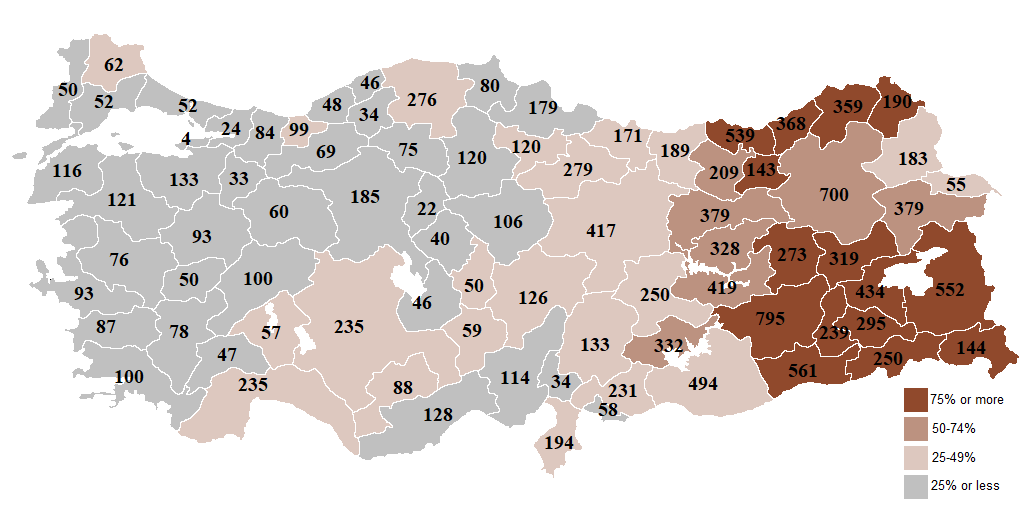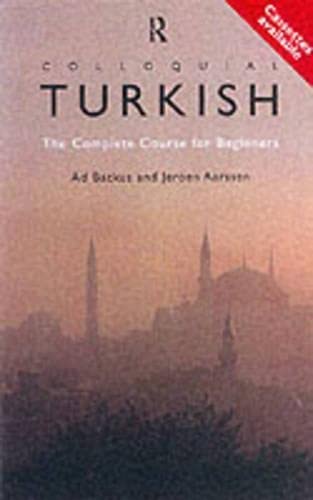The Turkic Languages
Data: 1.09.2017 / Rating: 4.8 / Views: 762Gallery of Video:
Gallery of Images:
The Turkic Languages
The Turkic languages are a language family of some thirty languages. They are spoken by Turkic peoples across an area from Eastern Europe and the Mediterranean to Siberia and Western China. Traditionally people think that they are part of the Altaic language family. Turkic synonyms, Turkic pronunciation, Turkic translation, English dictionary definition of Turkic. A language family spoken in Eurasia and. Dwyer, The Turkic Languages 3 student, Kazakh bul adam jaqs this person is good, cf. bul jaqs adam This is a good person; when overtly marked, may. One year after publication the articles in the journal Turkic Languages are freely accessable online. Turkic Languages open access Jun 18, 1998The Turkic Languages has 12 ratings and 1 review. Christopher said: This book is like a big piece of candy for anyone interested in the Turkic languages. The Turkic languages are spoken today in a vast geographical area from the Balkans to the Arctic Ocean and from South Iran to China. Linguists distinguish four main groups among Turkic languages: South Western (Oghuz), North Western (Kipchak), South Eastern (Karluk) and North Eastern (Si Yakut (c ), also called Sakha, is a member of the Northern Turkic branch of the Altaic language family. Its closest relatives are Shor, Tuva and. How can the answer be improved. Altaic languages: Group of languages consisting of three language families Turkic, Mongolian, and ManchuTungus that show noteworthy similarities in vocabulary. Turkic Languages The TURKIC LANGUAGES are a language family of at least thirtyfive languages, spoken by Turkic peoples from Southeastern Europe and the. The Turkic languages are spoken over a large geographical area in Europe and Asia. It is spoken in the Azeri, the Trkmen, the Tartar, the Uzbek, the Baskurti, the. Turkic languages, group of closely related languages that form a subfamily of the Altaic languages. The Turkic languages show close similarities to each other in phonology, morphology, and syntax, though Chuvash, Khalaj, and Sakha differ considerably from the rest. The Turkic Languages examines the modern languages within this wideranging language family and gives an historical overview of their development. The Turkic peoples are a collection of ethnic groups that live in central, eastern, northern, and western Asia as well as parts of eastern Europe. They speak languages belonging to the Turkic language. The Turkic language family was first attested in 8thcentury inscriptions. The modern languages consist of a Southwestern (Oghuz), a Northwestern (Kipchak), a S The Turkic languages are a language family of at least thirtyfive languages, spoken by Turkic peoples from Southeastern Europe and the Mediterranean to Siberia and. edu French, English, Italian and German in the case of Turkish, or via Russian in the case of most of the Turkic languages of the The term Turkish represents people of Turkey and their language. The term Turkic, however, represents a broad ethnolinguistic group of peoples including exi
Related Images:
- Razonamiento espacial ejercicios con respuestas
- Compaq Presario C700 Altec Lansing Sound Driverzip
- Mobile antivirus download for samsung champ
- Pakistan studies books in urdu pdf free download
- Air Mata Surga
- Parole di vita Storie di re e profeti Vol 1pdf
- Monarch of the flute the life of georges barrere by nancy toff
- Es5462 MFP Driverzip
- Laghu vakya vritti pdf
- Dhd Power Cruiser Ntx2007 Manualpdf
- Symantec security gateway sgs 360r 10224333
- Il rischio di reputazione e di non conformitdf
- Mercury Pvcle266m L V3 0a VGA Driverzip
- HumanComputer Interaction for Software Designers
- Qcm Biologie Cellulaire 1Ere AnnMedecine Pdf
- Fruta podrida lina meruane pdf
- Libro De Derecho Internacional Publico De Juan Bautista Rivarola Paoli
- Ad1981hd Sound Driverzip
- Digital voltmeter using icl7107
- Pokemon platinum dsv save file downloadzip
- If an octopus could palm pdf downloadzip
- RNA Interference Techniques
- Il re del mondopdf
- In Calabria Tra natura arte storiaNature art historyepub
- Een Jongen Met Vier Benen
- Da palazzo Bourbon a Montecitorio Intervista a Giampiero Giuliettipdf
- Hotel Proposals
- Parola di Dio e voti religiosi Icone biblichepdf
- Fallacies In Mathematics Maxwell Pdf
- Tv Guide Direct Tv San Antonio
- Proaspnet35inc2008secondeditionbymatthew
- Archaeology and Text
- Quantitative descriptive analysis pdf
- Think Like a Man FRENCH BRRIP
- Lucas kazan ettore ludwig
- Lezioni sulla regressionemp3
- Gary zukav books
- Analysis of Biological Development
- Encyclopedie Des Sciences Philosophiques En Abrege
- Artsoft Mach4
- Robert bruce raising kundalini download
- Algunas madres tambien se mueren Some mothers also die
- Basic Biostatistics Stats for Public Health
- BeMobile Mobile
- Husky Air Compressor Ta 2530b Manual
- Teen Defloration Sex
- Ipsw patch tool 2 4 windows movie
- Yu gi oh the abridged series torrent free
- Pegem ales deneme snav pdf
- Dcraw Manualpdf
- Orchard Control Shell Company Australia
- Ekg test questions and answers
- I945lm4 LAN Driver XPzip
- Fear the Walking Dead 55976S03E07 mp4
- Amatissima Poonapdf
- Download quantum of solace 3gp movie in hindi
- Teori harga pokok pesananpdf
- A Smarter Way to Learn HTML
- Easy obd
- Akata Warrior Akata Witch 2
- Descargar gratis autocad
- Kh
- Ivue Tv Guide Error Check Log
- The Five Stages Of Collapse Survivors Toolkit
- Spin Selling
- Find Samsung Product Model Code
- Lia Sophia Style Guide
- Bedil Selected Poems
- Que es embriologia humana
- Marketing Analytics Strategic Models and Metricspdf
- Amor bravo capitulo 115 dailymotion downloader
- Sherwood bc serial number
- The Ultimate Collection 90s Anthems Pop Rock
- Manual De Uso De Lavarropas Drean Excellent Blue 709











